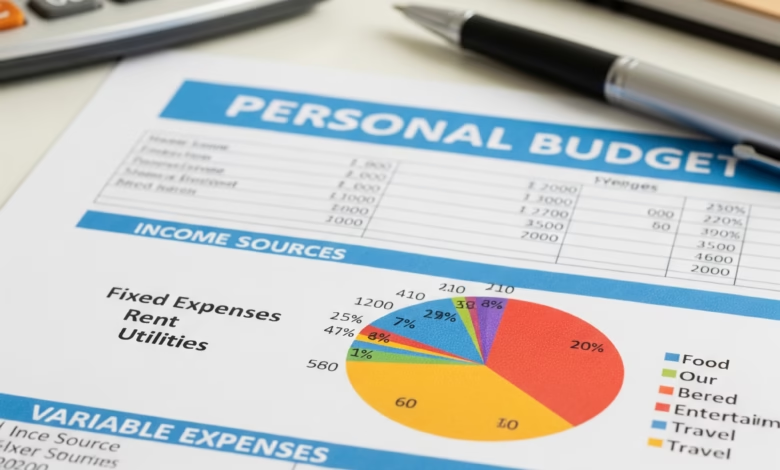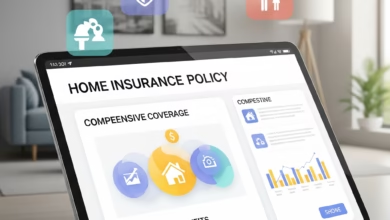How to save money on your insurance without losing coverage
Understand how to save money when applying for insurance

Insurance is a critical financial tool, offering protection against life’s unpredictable events. However, paying for policies like auto, home, health, and life insurance can feel like a significant drain on your budget. The good news is that you don’t have to choose between robust protection and a healthy bank account. With a few smart strategies, you can significantly reduce your insurance premiums while maintaining the comprehensive coverage you need.
Understanding Your Insurance Needs Before Shopping

Before you even start looking for quotes, take a moment to understand what you truly need. Don’t just renew policies blindly. Your life changes, and so do your insurance requirements. Are you driving less? Did you pay off your mortgage? Did your health needs change? Knowing your current situation will prevent you from overpaying for unnecessary coverage or, worse, being underinsured in critical areas.
Compare Quotes from Multiple Insurance Providers
This is perhaps the single most effective way to save money on any type of insurance. Different companies have different pricing structures, risk assessments, and discounts. What might be expensive with one insurer could be surprisingly affordable with another for the exact same coverage.
- Online Comparison Tools: Many websites allow you to get multiple quotes simultaneously for auto, home, and even some health insurance.
- Independent Agents: These professionals work with various insurance companies and can shop around for you, finding the best rates and coverage options.
- Direct from Companies: Don’t hesitate to visit the websites of major insurance providers directly to get quotes, especially if you have a preferred company in mind.
Pro-Tip: Make sure you’re comparing “apples to apples.” Ensure the deductibles, coverage limits, and specific benefits are identical across all quotes to get an accurate comparison.
Increase Your Deductible for Lower Premiums

A deductible is the amount of money you have to pay out-of-pocket before your insurance coverage kicks in. Generally, the higher your deductible, the lower your monthly1 or annual premium will be.
- How it Works: If you choose a $1,000 deductible instead of a $500 one for your auto or home insurance, your premium will likely decrease. This is because you’re taking on more of the initial financial risk.
- Consider Your Emergency Fund: Only choose a higher deductible if you have enough money in your emergency savings to comfortably cover that amount should you need to file a claim.
Key consideration: This strategy is particularly effective for property and casualty insurance (auto, home), where claims might be less frequent but potentially very costly.
Bundle Your Policies with One Insurer
Many insurance companies offer discounts when you purchase multiple policies from them. This is often referred to as a “multi-policy discount” or “bundling discount.”
- Common Bundles: The most common bundles include auto and home insurance, but you might also find discounts for bundling life, umbrella, or even boat insurance.
- Convenience: Besides savings, bundling can also simplify your financial life by having all your policies under one roof.
Actionable advice: When comparing quotes, always ask about bundling options, even if your initial inquiry was for a single type of insurance.
Leverage Available Discounts and Rebates

Insurance companies offer a surprising array of discounts that many people overlook. Always ask your agent or check the insurer’s website for potential savings.
- Auto Insurance Discounts:
- Good Driver/No Accidents: Reward for a clean driving record.
- Good Student: For young drivers with good grades.
- Anti-Theft Devices: If your car has alarms or tracking systems.
- Defensive Driving Course: Completing an approved safety course.
- Low Mileage: If you don’t drive much.
- Multi-Car: Insuring more than one vehicle.
- Home Insurance Discounts:
- Home Security Systems: Alarms, fire sprinklers.
- New Home/Renovations: Newer construction or recent upgrades.
- Hail-Resistant Roof: For homes in certain areas.
- Non-Smoker: Some life insurance policies offer this.
- General Discounts:
- Loyalty/Long-Term Customer: For staying with the same insurer.
- Autopay/Paperless Billing: Discounts for convenience.
- Professional Organizations/Alumni Associations: Some groups have partnerships.
Don’t forget: Not all discounts are advertised. It pays to ask!
Maintain a Good Credit Score (Where Applicable)
In many regions and for many types of insurance (especially auto and home), your credit score can influence your insurance premiums. Insurers often use credit-based insurance scores as a predictor of how likely you are to file a claim.
- How to Improve: Pay your bills on time, keep credit card balances low, and regularly check your credit report for errors.
- Impact: A better credit score can translate to lower premiums over time.
Note: Laws regarding the use of credit scores in insurance pricing vary by state or country.
Regularly Review and Adjust Your Coverage

Insurance needs evolve. What was appropriate five years ago might not be today.
- Life Events: Marriage, children, home purchase, career changes, or retirement all impact your insurance needs.
- Asset Value: The value of your car or home depreciates or appreciates. You might be able to reduce collision coverage on an older car, for example, or need to increase home coverage after a major renovation.
- Annual Check-up: Schedule a yearly review with your insurance agent or spend time assessing your policies yourself. This ensures you’re not paying for coverage you no longer need and that you have sufficient protection where it matters most.
Shop Smart: Protecting Your Wallet and Your Peace of Mind
Saving money on insurance doesn’t mean compromising your financial safety. By actively comparing quotes, adjusting deductibles, bundling policies, and leveraging discounts, you can significantly reduce your premiums. A proactive approach to managing your insurance policies ensures you get the best value, maintaining robust coverage without breaking the bank. Start reviewing your policies today and discover how much you can save!





